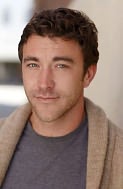- Shopping Bag ( 0 items )
From Barnes & Noble
"Yale Alum Killed in Drug House." Robert Peace was only thirty when he was shot and killed in Newark in 2011, less than a decade after he graduated from Yale University with a degree in biochemistry. In this book, Jeff Hobbs, his college roommate for four years, writes with acute perceptiveness about his friend, a brilliant student who had seemed to escape his childhood in a crime-ridden urban slum, but hadn't. The Short & Tragic Life of Robert Peace is a heartfelt, poignant celebration of a gifted, giving young man who died tragically, but it is something more, lending readers a unique view into the double lives that many poor people feel impelled to lead. A Discover Great New Writers selection; editor's recommendation.





Overview
A heartfelt, and riveting biography of the short life of a talented young African-American man who escapes the slums of Newark for Yale University only to succumb to the dangers of the streets?and of one?s own nature?when he returns home.
When author Jeff Hobbs arrived at Yale University, he became fast friends with the man who would be his college roommate for four years, Robert Peace. Robert?s life was rough from the beginning in the crime-ridden streets of Newark in the ...